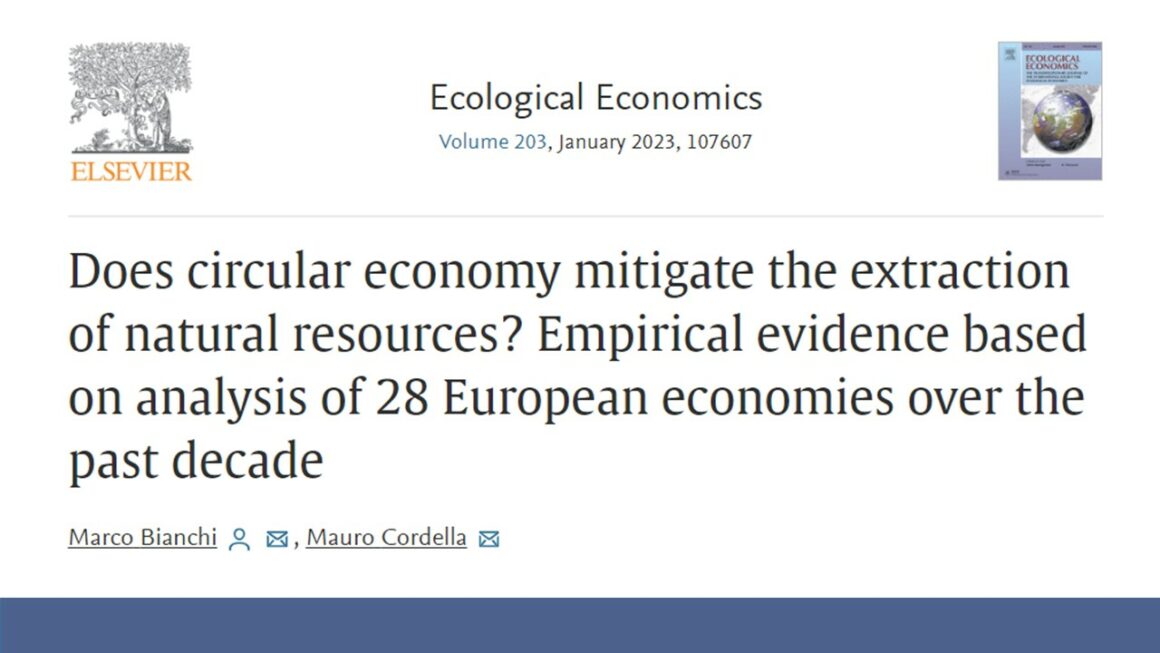Moving towards a circular economy (CE) has become one of the main strategic initiatives on a global scale in the search for sustainable economic systems. However, the conceptual relationship between sustainable development and the circular economy is a matter of ongoing debate. In particular, the extent to which CE initiatives are contributing to the mitigation of resource extraction seems to be a still unclear topic.
This paper investigates the relationship between the extraction of natural resources and the CE and also analyses the effects of critical socioeconomic drivers such as economic and population growth and economic structures. The analysis is based on panel data covering 28 European countries during the period 2010–2019.
Results confirm that promoting a shift towards more circular economic systems can reduce the extraction of primary resources. However, the mitigating effect of CE initiatives remains rather marginal when compared to the impact of economic growth. Namely, estimates show that the primary resources extracted annually linked to economic growth are roughly four times the resources saved by CE initiatives.
The findings provide evidence that the circularity of economic systems should be approached from a systemic perspective that includes both production and consumption as well as waste management. In particular, complementary measures addressing behavioural consumption are needed if we want to achieve sustainable development.
For full-text article please visit: https://www.sciencedirect.com/science/article/pii/S0921800922002683


